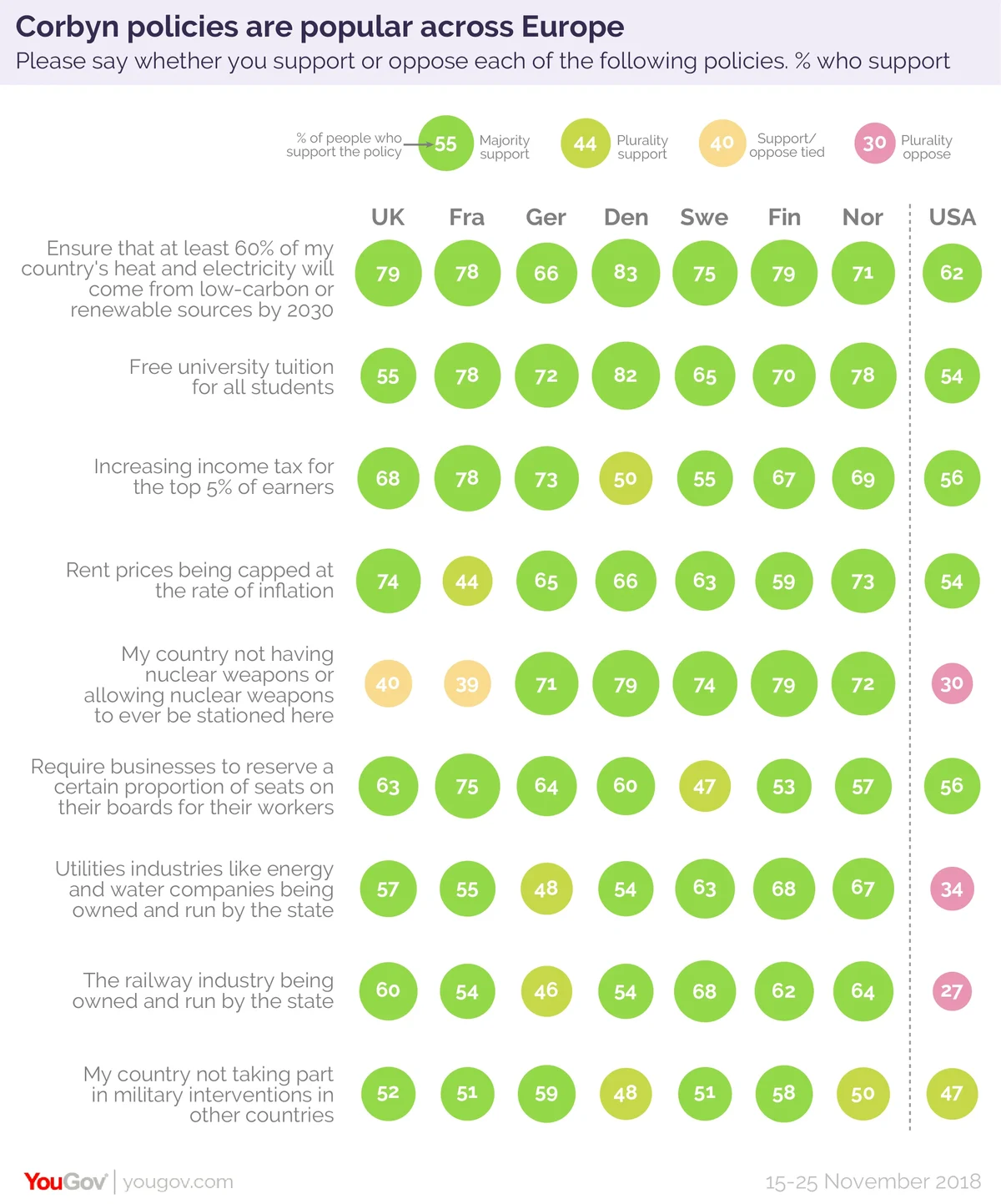Even in the US most of nine Labour policies we put to people received majority backing
The British General Election of 2017, an academic account of last year’s vote, recalls how Jeremy Corbyn’s team questioned just how radical Labour’s manifesto was, given that many of the policies were already mainstream in several European countries.
But the question shouldn’t unduly worry Labour advisers; a new international YouGov survey shows that Corbynite policies are popular not only on the continent, but also in the UK.
How popular is Labour policy?
YouGov selected a sample of nine Labour policies* that were either in the 2017 manifesto or otherwise well-publicised proposals.
In none of the European countries surveyed are any of Corbyn’s policies opposed by more people than supported. In fact, most of the time they’re supported by the majority.
Labour’s pledge to make university tuition free for all students garners majority support in every country listed, as does their proposal to generate 60% of electricity and heat from low carbon or renewable sources by 2030.
In the UK this energy pledge is the most popular of all, being supported by 79% of people, followed by capping rents (74%) and raising taxes for the richest 5% of earners (68%).

The lowest levels of support in Europe for a Corbyn policy come in Britain and France, where people are equally split on whether they support or oppose banning nuclear weapons from their respective countries.
We also had the opportunity to ask the same questions in the United States: here too, there is strong support for most Corbyn policies, although Americans tend to oppose nuclear disarmament and nationalising industry.
Is it enough to have popular policies?
This begs the question: if Corbyn’s policies are so popular in Britain, why aren’t Labour doing better in the polls?
The likely answer is that voters base decisions not purely on policy, but also on broader perceptions of competence, values and leadership. And it is here that Labour finds itself in trouble.
When asked whether Corbyn would make a better Prime Minister than Theresa May, only 24% back the Labour leader. And on the key issue of economic competence the Conservatives are seen as the best party for the job by 32%, to Labour’s 21%.
But fans of these policies should not despair at the unpopularity of their standard bearer. Ed Miliband never made it to Downing Street, but some of his policies – for instance, capping energy bills – have since been pilfered by the Conservatives.
The popularity of these policies mean that if Corbyn does not manage to gain the keys to Number 10 there is still every chance that someone else will be able to make them a reality.
* You will notice that no health policy is present on this list. This is because most major Labour health policies are specific to the UK’s primarily state-run healthcare system. Such proposals would not be relevant to people in France, Germany and the US, where the healthcare systems operate under different principles.
This only leaves Labour’s pledge to spend more money on healthcare, and you don’t need an opinion poll to tell you that proposing to spend more money on healthcare would be very popular in all countries.
Photo: Getty













